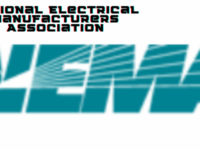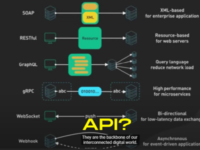API (American Petroleum Institute) standards are crucial in ensuring safety, reliability, and integrity within the petroleum, petrochemical, and natural gas industries. Here’s a detailed overview of the standards you’ve mentioned:
-
Daftar Isi show
API 510 – Pressure Vessel Inspection:
- Purpose: API 510 provides guidelines for the maintenance, inspection, repair, and alteration of pressure vessels.
- Scope: This standard covers both in-service inspection and repair of pressure vessels used in various industries, including oil and gas, chemical, and power generation.
- Importance: Ensures the safe operation of pressure vessels by establishing criteria for inspection intervals, examination procedures, and acceptance criteria for repairs and alterations.
-
API 570 – Piping Inspector:
- Purpose: API 570 outlines the inspection, repair, and alteration guidelines for metallic and fiberglass-reinforced plastic (FRP) piping systems.
- Scope: This standard applies to in-service inspection, repair, alteration, and rerating activities for piping systems used in refineries, chemical plants, and other industries.
- Importance: Helps maintain the integrity of piping systems, preventing leaks, failures, and potential hazards associated with the transportation of fluids and gases.
-
API 653 – Tank Inspection, Repair, Alteration, and Reconstruction:
- Purpose: API 653 addresses the maintenance, inspection, repair, relocation, alteration, and reconstruction of aboveground storage tanks (ASTs).
- Scope: Covers aboveground welded steel storage tanks used for storing petroleum products, chemicals, and other liquids.
- Importance: Ensures the structural integrity of ASTs to prevent leaks, spills, and environmental contamination, thereby safeguarding public health and the environment.
-
API 580 – Risk-Based Inspection (RBI):
- Purpose: API 580 focuses on the integrity management of equipment in the petroleum, petrochemical, and natural gas industries through risk-based inspection.
- Scope: Provides guidelines for developing and implementing risk-based inspection programs to prioritize inspection activities based on the potential consequences and likelihood of equipment failure.
- Importance: Helps organizations optimize inspection resources, reduce downtime, and mitigate risks associated with equipment failures, ensuring operational safety and reliability.
-
API 581 – Base Resource Document:
- Purpose: API 581 serves as a base resource document for the assessment and management of risks associated with equipment integrity.
- Scope: Provides methodologies for risk assessment, including qualitative, semi-quantitative, and quantitative approaches, to evaluate the likelihood and consequences of equipment failure.
- Importance: Enables organizations to make informed decisions regarding inspection intervals, maintenance strategies, and risk mitigation measures to ensure the integrity and reliability of equipment assets.
-
API 579 – Fitness For Service:
- Purpose: API 579 provides guidelines for the assessment of structural integrity and fitness for continued service of equipment that may have experienced degradation or damage.
- Scope: This standard applies to various types of equipment, including pressure vessels, piping, storage tanks, and other components used in industries such as oil refining, petrochemical processing, power generation, and more.
- Importance: API 579 helps operators evaluate the fitness of equipment for continued operation, considering factors such as defects, damage, corrosion, and other forms of degradation. By conducting fitness-for-service assessments, organizations can make informed decisions regarding repair, replacement, or continued operation of equipment, ensuring safety, reliability, and regulatory compliance.
7. API 579 Training: Fitness For Service:
- Purpose: API 579 training programs aim to provide industry professionals with the knowledge and skills necessary to effectively apply the guidelines outlined in the API 579 standard.
- Content: Training may cover topics such as damage mechanisms, assessment methodologies, inspection techniques, fracture mechanics, and repair/replacement criteria relevant to fitness-for-service evaluations.
- Audience: The training is designed for engineers, inspectors, maintenance personnel, and other professionals involved in the assessment and management of equipment integrity.
- Delivery: Training programs may be offered through workshops, seminars, online courses, or self-study materials, allowing participants to learn at their own pace and convenience.
- Benefits: API 579 training helps individuals enhance their technical expertise in evaluating the fitness of equipment for continued service, enabling them to contribute effectively to the safety, reliability, and integrity of industrial facilities.
8. API 571 – Damage Mechanisms:
- Purpose: API 571 focuses on the identification and understanding of corrosion and materials degradation mechanisms prevalent in the refining and petrochemical industries.
- Scope: This standard covers a wide range of damage mechanisms, including corrosion, erosion, cracking, sulfidation, hydrogen damage, and others, occurring in various equipment and materials used in process industries.
- Importance: By providing insights into the causes and effects of damage mechanisms, API 571 helps organizations develop effective corrosion management strategies, inspection plans, and materials selection criteria to prevent failures, ensure asset integrity, and extend equipment service life.
9. API 571 Training: Corrosion and Materials:
- Purpose: API 571 training programs aim to educate industry professionals on the fundamentals of corrosion and materials degradation mechanisms as outlined in the API 571 standard.
- Content: Training may cover topics such as corrosion types, metallurgy, materials selection, damage mechanisms, inspection techniques, mitigation measures, and best practices for corrosion management.
- Audience: The training is suitable for engineers, inspectors, corrosion specialists, metallurgists, and other personnel involved in the design, operation, maintenance, and inspection of industrial facilities.
- Delivery: Training may be delivered through classroom lectures, workshops, webinars, e-learning modules, and hands-on practical sessions, tailored to meet the needs of participants with varying levels of expertise and experience.
- Benefits: API 571 training equips professionals with the knowledge and skills necessary to effectively identify, assess, and mitigate corrosion-related risks, thereby enhancing the integrity, reliability, and safety of industrial assets and processes.
Training programs associated with each standard provide industry professionals with the necessary knowledge and skills to effectively implement these guidelines and ensure compliance with regulatory requirements, thereby enhancing safety, reliability, and operational efficiency in the oil and gas industry.

